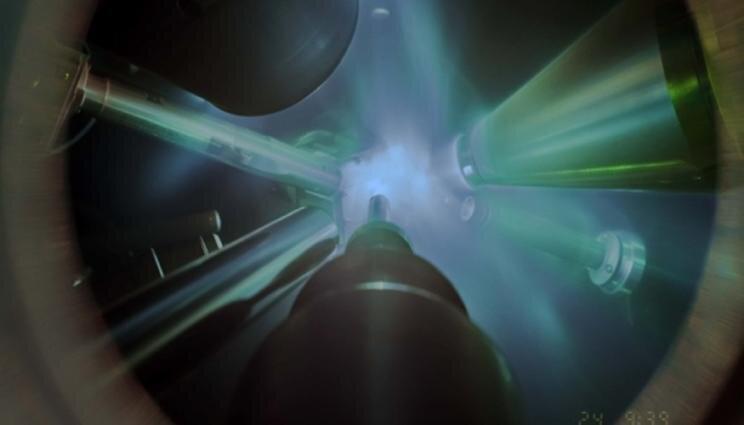Lawrence Livermore National Laboratory (LLNL) researchers have explored high-pressure behavior of shock-compressed tantalum at the Omega Laser Facility at the University of Rochester’s Laboratory for Laser Energetics (LLE). The work showed tantalum did not follow the predicted phase changes at high pressure and instead maintained the body-centered cubic (BCC) phase until melt.
The results of the work are featured in a Physical Review Letters paper and focuses on how researchers studied the melting behavior of tantalum at multi-megabar pressures on the nanosecond timescale.
“This work provides an improved physical intuition for how materials melt and respond at such extreme conditions,” said Rick Kraus, lead author of the paper. “These techniques and improved knowledge base are now being applied to understanding how the iron cores of rocky planets solidify and also to more programmatically relevant materials as well.”
